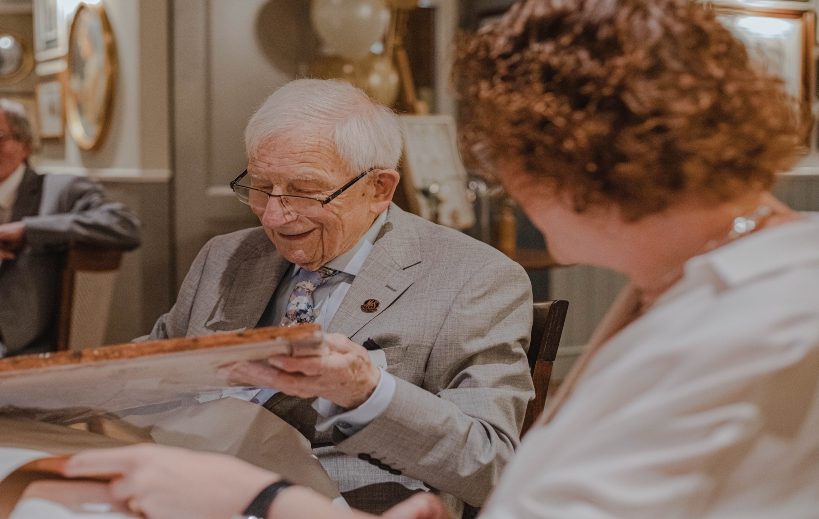New year, new challenges

Over the holiday season many families spend more time together. Visiting or hosting older family members can provide important chances for generations to connect. However, it can also uncover health and cognitive challenges.
Why do families often notice changes over the holidays?
There are changes to routine and environment
Routine is important for all of us. Think about the last time you put your keys down somewhere unusual – chances are it was more difficult to find them when you needed them next. When someone is experiencing physical or cognitive changes, a consistent routine and environment becomes even more important. You may notice that someone seems more unsure, confused or anxious, or that they withdraw from conversations or activities.
Challenges that emerge when a person is out of their regular routine can be one of the first signals to families that something is up.
Family is in closer proximity to each other, for longer periods of time
For family members who live far away, holiday visits can reveal clues that a parent or other elderly family member is not coping as well as they had been previously. For example, a visitor may notice that their mom’s fridge is (unusually) full of moldy food, and the litter box is full, or that their dad is needing to cue mom to do or remember things that usually would not usually have been a challenge.
In some cases, the person themselves will note that their memory is failing them, or that they are having physical challenges around the home. In other cases, they will be unaware that changes are taking place.
More family members are around to notice differences
Because changes often occur over a long period of time, family members who see the older adult most frequently, such as a spouse, are sometimes less likely to notice that symptoms are progressing. This can mean that other family members are sometimes more attuned to differences in the person’s abilities or behaviour.
What can family members do?
Take time to mange feelings of guilt or grief
Upon noticing challenges family members may ask themselves why they did not notice sooner or feel badly for not visiting more often. Emotions of guilt or grief are common. Acknowledging and working through these feelings is an important step for both the caregiver’s well-being, and for the person who is being supported.
Consider speaking to an organization that helps caregivers, or to a social worker or counselor.
Speak with your parent or family member
If at all possible, delicately speak with the person and explain what you are noticing. Aim to be objective and non-judgemental – using “I feel” statements can help. Try to support the person in finding a solution offering options rather than advice or instruction.
If there is someone who lives with the person, or sees them more regularly, always consider involving them in the conversation, or having a conversation with them beforehand. They are likely to have additional insight.
Determine the root cause of the challenge
Many health issues can make coping at home more challenging. If a diagnosis is not already in place, support the person to see a doctor to help determine what the underlying challenge is.
If you are noticing symptoms that come on immediately or suddenly seek more immediate help.
Learn about your options
Sometimes the hardest part about exploring different options is knowing what all the different terms mean. Route 65 has developed a Glossary, which you can refer to throughout your journey. On our website you can also find answers to Frequently Asked Questions, like the difference between publicly subsidized care and private pay options.
Walter, Route 65’s 24/7 digital concierge, can help you get started by determining which level of support or care is most appropriate.
Seek more support
Once you know what type of support the person you care about needs, work with them to put a plan in place. Use Route 65 to learn about the services offered by B.C.’s leading operators of independent living, assisted living, long-term care and home health care.
Plan ahead
Sometimes the conversations that result from observing new challenges can provide a good opportunity to put plans in place for the future. The earlier this is done, the better.
